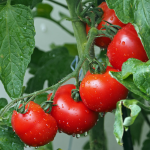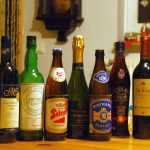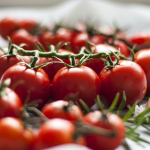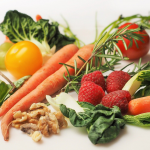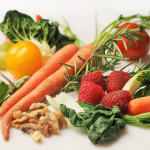Food intolerance and food allergy sometimes create confusion among people. Many of us don’t know how they differ in both cause and care.
Food & Nutrition
Over this six-part series, I have demonstrated that purported organics are neither safer, healthier, tastier, or better for the environment. It is time to consider whether that organic label is trustworthy.
California's Central Valley produces more than 250 different crops comprising one-fourth of the nation's food. That includes 40% of our fruits, nuts, and other table foods. However, California is currently facing a severe drought, which will require farmers to fallow at least 500,000 acres of farmland. So how do we grow the necessary food?
What happens when you freeze, and then thaw, milk? Visible evidence suggests that it turns into spit-up. But is that what's going on? And why would anyone care? Read on, but only if you have nothing better to do.
Dietary guidelines must be realistic, not idealistic, in order for people to follow them.
A consumer will often attempt to compare the taste of locally-grown organic produce with its national chain-store counterpart. This is not a fair comparison. Regarding taste, the key is not whether it's conventionally grown or organic, but when it is harvested.
“… what if a DNA test could provide you with a personalized blueprint to how food affects YOUR body? … How can you eat the best food for your body? It’s all about eating for your genes.” Can all this be true?
Is brown sugar healthier than white sugar? Is honey good for you? How about bean sprouts and lemon water? Strange menu, no?
Millions of consumers believe that organics are more nutritious than conventionally grown foods. But this defies basic plant physiology.
Nationally, according to The American Farm Bureau Federation, farm and ranch families comprise less than 2% of the U.S. population, growing and producing the food for what the other 98% need. The rest of us are free to choose other livelihoods. This results in most consumers having limited to no understanding regarding standard agricultural practices, basic plant physiology, and the global food challenge to feed over 7 billion people.
Antioxidants are one of the holy grails for marketers of a wide variety of food and supplemental products. For many, the term "antioxidant" has become synonymous through repetition with better health and the prevention of a myriad of ailments. In essence, antioxidants have been misconceived to be a magic bullet for health and longevity.
There's nothing like fear to generate abnormal behavior. And in the age of COVID-19 there's plenty of fear going around (so expect a lot of it). In the past few months, we've seen that one of these odd behaviors is attributed to a significant number of health-news headlines recommending vitamin C to purportedly assist one's immune response to COVID-19. Let's take a closer look.


